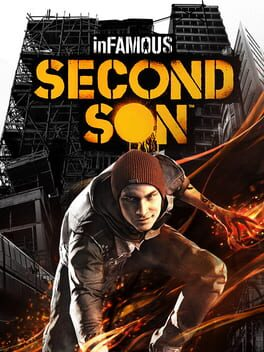Trivia Browser
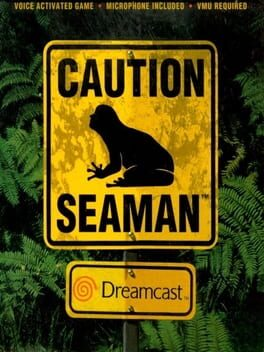
This trivia has been marked as "Not Safe for Work".
It may not be appropriate for all visitors and definitely isn't appropriate for work or school environments.
Click here to unhide it.
It may not be appropriate for all visitors and definitely isn't appropriate for work or school environments.
Click here to unhide it.
▲
5
▼
Time Extension article:
https://www.timeextension.com/news/2024/02/nsfw-easter-egg-discovered-in-dreamcast-title-seaman
Reddit comments:
https://www.reddit.com/r/dreamcast/comments/19e2vog/comment/kjasibm/
https://www.reddit.com/r/dreamcast/comments/19e2vog/comment/kjb7pr2/
https://www.reddit.com/r/dreamcast/comments/19e2vog/comment/kjdg24a/
https://www.timeextension.com/news/2024/02/nsfw-easter-egg-discovered-in-dreamcast-title-seaman
Reddit comments:
https://www.reddit.com/r/dreamcast/comments/19e2vog/comment/kjasibm/
https://www.reddit.com/r/dreamcast/comments/19e2vog/comment/kjb7pr2/
https://www.reddit.com/r/dreamcast/comments/19e2vog/comment/kjdg24a/
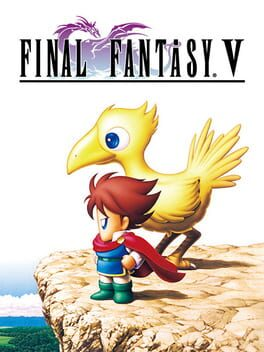
▲
5
▼
 The translation group RPGe's 1998 English translation of Final Fantasy V is considered to be one of the most widely-played and influential fan translations in video game history. It gained this reputation because it released before Squaresoft's first official translation in Final Fantasy Anthology in late 1999, and despite RPGe primarily consisting of inexperienced teenagers, it was regarded as a better translation than the official one, leading many Western players to first experience the game through it.
The translation group RPGe's 1998 English translation of Final Fantasy V is considered to be one of the most widely-played and influential fan translations in video game history. It gained this reputation because it released before Squaresoft's first official translation in Final Fantasy Anthology in late 1999, and despite RPGe primarily consisting of inexperienced teenagers, it was regarded as a better translation than the official one, leading many Western players to first experience the game through it.The first translation attempts stemmed from widespread confusion over Squaresoft not releasing three FF games in the West: Final Fantasy II, Final Fantasy III, and FFV. Their decision to release Final Fantasy VII internationally under its original numbering after Final Fantasy VI was released in the West a few years earlier as the "third" game in the series also contributed to this.
The co-creator of RPGe, named Shadow, was inspired by an incomplete FFII translation by users Demi and Som2freak (the latter having later lent Shadow tools to work on FFV), and started translating FFV by making flashcards for which hex code corresponded to each Japanese and English character in the game's data. He promoted his efforts online using photoshopped FFV images and recruited other users to create RPGe, including translator David Timko, and a computer engineering major named Hooie who also asked Japanese instructors at his university to help translate some enemy names. RPGe's plan was to directly edit their English script into the text files of a ROM of the Japanese version, but their work was slow and tedious due to them having little experience with fan translations and being out of touch with fledgling emulation communities. This lead to technical issues with their text and sprite editing software, and English characters being poorly displayed under conditions that were originally designed for larger Japanese characters. The group also suffered from internal factionalism, and since Shadow promoted himself as the public face of the project, he found that he could not handle the attention and controversy that came from how seriously he took the project and RPGe itself, seeing the translation effort as a vital service to the Squaresoft fan community. After Demi published a lengthy post parodying Shadow, he "snapped" and left RPGe. The co-founders of RPGe would also eventually step down, but other users would take over and start their own work.
A user named Myria, who had argued against RPGe's hex editing approach to no avail, split off from their efforts beforehand to work on a separate translation. Sharing similar setbacks to them, she gradually parsed through the code used to handle the text files, and edited it so it could recognize English characters of different sizes and fit more in a dialogue box. Som2freak helped translate the script for a time, but then left the project after bringing on a new editor, named harmony7, who started heavily revising Som2freak's translations to his chagrin despite seeing several issues with it.
One of the most controversial aspects of the translation was the main character's name. Squaresoft's later English translation named him "Bartz", but RPGe's translation named him "Butz", which many joked sounds like "butts". Myria claimed that Butz was the most accurate translation based on documents and official merchandise using it "the way we'd written it" (for reference, the Romanized version of the Japanese name "バッツ" comes out as "Battsu"). However, Butz is used in real life as an actual German surname with a different pronunciation, the vowel being an "oe" sound like in the English words "put" and "good". Therefore, Bartz would make more sense to match up with the vowels in the Japanese name than Butz, and also fits better as a German first name since Bartz is a pet name for Bartholomäus (Bartholomew).
The bulk of Myria's technical work ended in October 1997, with harmony7 still working to revise the entire script until something unexpected happened. An early version of the fan translation mysteriously appeared on a Geocities website with others taking credit for it. This prompted RPGe to release their work up to that point as "v0.96" on October 17, 1997, with the final patch eventually being released in June 1998. The translation patch received acclaim for its technical aspects and near-professional writing quality, and influenced other players to become translators, including Clyde Mandelin who would later create the English fan translation for Mother 3. Squaresoft never contacted RPGe about the translation, and while their 1999 localization of the game was seen as inferior to RPGe's, Myria would later opine that Square Enix's 2006 localization in Final Fantasy V: Advance was better than theirs. Myria continued hacking and reverse-engineering games and eventually earned a job at an undisclosed major video game company.
2017 Kotaku article:
https://web.archive.org/web/20170428183534/https://kotaku.com/how-three-kids-beat-the-odds-and-translated-final-fanta-1794628286
2021 IGN article:
https://web.archive.org/web/20210508152802/https://www.ign.com/articles/the-untold-drama-and-history-behind-final-fantasy-5s-fan-translation
Butz surname pronunciation:
https://en.wiktionary.org/wiki/Butz#Pronunciation_2
Bartz pet name source from Ancestry.com:
https://www.ancestry.com/name-origin?surname=bartz
Final Fantasy Chrome Figure Collection wiki articles:
https://finalfantasy.fandom.com/wiki/Final_Fantasy_Chrome_Figure_Collection
https://ffmerchandise.fandom.com/wiki/Final_Fantasy_Chrome_Figures_Collection
Ebay listing for Final Fantasy Chrome Figure set including Butz:
https://www.ebay.com/itm/275540207811
https://web.archive.org/web/20170428183534/https://kotaku.com/how-three-kids-beat-the-odds-and-translated-final-fanta-1794628286
2021 IGN article:
https://web.archive.org/web/20210508152802/https://www.ign.com/articles/the-untold-drama-and-history-behind-final-fantasy-5s-fan-translation
Butz surname pronunciation:
https://en.wiktionary.org/wiki/Butz#Pronunciation_2
Bartz pet name source from Ancestry.com:
https://www.ancestry.com/name-origin?surname=bartz
Final Fantasy Chrome Figure Collection wiki articles:
https://finalfantasy.fandom.com/wiki/Final_Fantasy_Chrome_Figure_Collection
https://ffmerchandise.fandom.com/wiki/Final_Fantasy_Chrome_Figures_Collection
Ebay listing for Final Fantasy Chrome Figure set including Butz:
https://www.ebay.com/itm/275540207811

subdirectory_arrow_right Super Mario Maker 2 (Game)
▲
5
▼
 Many international Mario fans were confused by the design of the Angry Sun in the New Super Mario Bros. U style of Super Mario Maker 2, noticing how it appeared more stern than angry. This is due to the fact that "angry" is not part of the enemy's name in Japan, just being called "sun", meaning that anger is not an inherent part of the character and giving it a different expression would make more sense without knowledge of its localized name.
Many international Mario fans were confused by the design of the Angry Sun in the New Super Mario Bros. U style of Super Mario Maker 2, noticing how it appeared more stern than angry. This is due to the fact that "angry" is not part of the enemy's name in Japan, just being called "sun", meaning that anger is not an inherent part of the character and giving it a different expression would make more sense without knowledge of its localized name.The new design of the "Angry" Sun seems to be based on pre-colonial mythology based on the sun, most particularly the Inca sun god Inti, a design inspiration that seems to exist in anthropomoprhic suns from multiple other Nintendo games such as The Legend of Zelda: Ocarina of Time, Mole Mania, and Kid Icarus: Of Myths and Monsters
Angry Sun name:
https://www.suppermariobroth.com/post/727215192118837248/mariowikicomfilesmm2-nsmbu-angrysungif
Video detailing the potential influence for the new Angry Sun:
https://www.youtube.com/watch?v=zPVIekKLZWQ
https://www.suppermariobroth.com/post/727215192118837248/mariowikicomfilesmm2-nsmbu-angrysungif
Video detailing the potential influence for the new Angry Sun:
https://www.youtube.com/watch?v=zPVIekKLZWQ
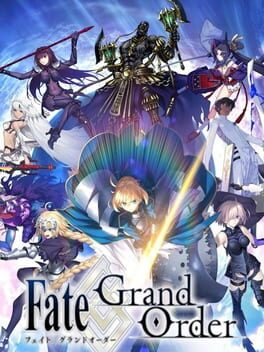
This trivia has been marked as "Not Safe for Work".
It may not be appropriate for all visitors and definitely isn't appropriate for work or school environments.
Click here to unhide it.
It may not be appropriate for all visitors and definitely isn't appropriate for work or school environments.
Click here to unhide it.
▲
4
▼

▲
4
▼
The European version of Donkey Konga contains a cover of the song Tubthumping by Chumbawamba. The lyric "Pissing the night away" is censored as "Kissing the night away", but - despite the game's 3+ rating - "He drinks a Whiskey drink, he drinks a Vodka drink. He drinks a Lager drink, he drinks a Cider drink" remains uncensored.

This trivia has been marked as "Not Safe for Work".
It may not be appropriate for all visitors and definitely isn't appropriate for work or school environments.
Click here to unhide it.
It may not be appropriate for all visitors and definitely isn't appropriate for work or school environments.
Click here to unhide it.
▲
3
▼

▲
3
▼
Prior to the release of the official Japanese version, Japanese audiences, who previously experienced the game through various fan translations, frequently debated about how Sans would refer to himself in dialogue. In the Japanese language, there are multiple first-person singular pronouns, each with their own distinct connotations. Among Japanese fans, the common consensus was that Sans would either refer to himself with 僕 ("boku") or 俺 ("ore"). While both pronouns are masculine, the former has an informal and "boyish" connotation, while the latter typically indicates brashness.
Once the Japanese localization came out, audiences were surprised to discover that Sans instead refers to himself with オイラ ("oira"), a relatively archaic pronoun which is commonly associated with hillbillies (though milder in connotation than おら, "ora"), only using "ore" during his sterner moments. The atypical choice of pronoun resulted in #オイラショック ("#OiraShock") becoming a trending topic on Twitter in Japan, with many fanartists in the country responding by making tongue-in-cheek drawings riffing on it.
Once the Japanese localization came out, audiences were surprised to discover that Sans instead refers to himself with オイラ ("oira"), a relatively archaic pronoun which is commonly associated with hillbillies (though milder in connotation than おら, "ora"), only using "ore" during his sterner moments. The atypical choice of pronoun resulted in #オイラショック ("#OiraShock") becoming a trending topic on Twitter in Japan, with many fanartists in the country responding by making tongue-in-cheek drawings riffing on it.
Kotaku article about the "Oria Shock" phenomenon:
https://kotaku.com/undertales-japanese-localization-is-causing-a-fan-frenz-1796085385
Legends of Localization article on first-person pronouns in Japanese that uses Sans as an example of "oira":
https://legendsoflocalization.com/personal-pronouns-in-japanese/
https://kotaku.com/undertales-japanese-localization-is-causing-a-fan-frenz-1796085385
Legends of Localization article on first-person pronouns in Japanese that uses Sans as an example of "oira":
https://legendsoflocalization.com/personal-pronouns-in-japanese/
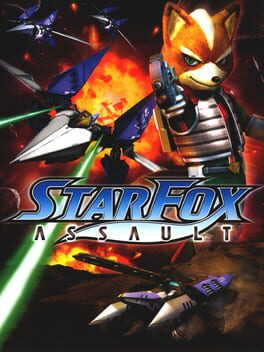
▲
3
▼
 Star Fox: Assault is notable for including three unlockable Famicom/NES games originally created by Namco:
Star Fox: Assault is notable for including three unlockable Famicom/NES games originally created by Namco:• Xevious
• Battle City
• Star Luster
As explained by the development team in an issue of Nintendo Dream, this was done to highlight Star Fox: Assault being a collaboration between Nintendo and Namco, with the latter being its primary developer. With the Star Fox franchise being a sci-fi shooter series, Tsuyoshi Kobayashi and Takaya Imamura had carefully decided on which classic Namco games would fit the best with that vibe. There were considerations to also include Nintendo created Famicom/NES games (one person, for example, had suggested including Balloon Fight), but ultimately Imamura and Kobayashi couldn't come up with any games that would have fit the Star Fox world and atmosphere.
Unfortunately, as the Famicom versions of Battle City and Star Luster had never been released in Western territories, they in turn were excluded from all Western versions of Star Fox: Assault, leaving Xevious as the only unlockable Namco game outside of Japan.
Star Fox Assault Nintendo Dream interview:
https://shmuplations.com/starfoxassault/
Footage of Xevious, the only unlockable Namco game in the western version of SFAss:
https://youtu.be/BrMv7tKA74A?t=6
https://shmuplations.com/starfoxassault/
Footage of Xevious, the only unlockable Namco game in the western version of SFAss:
https://youtu.be/BrMv7tKA74A?t=6

▲
3
▼
 One of the few tracks included from Donkey Kong Country: Tropical Freeze within the soundtrack for both Super Smash Bros. for Wii U and Super Smash Bros. Ultimate is "Swinger Flinger". However, actually listening to the track reveals it to instead be the theme for the Bopopolis stage.
One of the few tracks included from Donkey Kong Country: Tropical Freeze within the soundtrack for both Super Smash Bros. for Wii U and Super Smash Bros. Ultimate is "Swinger Flinger". However, actually listening to the track reveals it to instead be the theme for the Bopopolis stage.This error is not presented in the Japanese versions of these games, where the "Swinger Flinger" track is properly referred to by its Japanese name equivalent to Bopopolis, ふみふみラビリンス (Fumifumi Rabirinsu), or Stomping Labyrinth. In comparison, the actual Swinger Flinger track and stage in the Japanese version of Tropical Freeze is called バインラビリンス (Bain Rabirinsu), or Vine Labyrinth.
Donkey Kong Country: Tropical Freeze - Swinger Flinger:
https://www.youtube.com/watch?v=L99owHdoU-A
"Swinger Flinger" aka Bopopolis/Stomping Labyrinth from Super Smash Bros. Ultimate:
https://www.youtube.com/watch?v=kwba4WwyGuA
Mario Wiki articles:
https://www.mariowiki.com/Swinger_Flinger
https://www.mariowiki.com/Bopopolis
https://www.youtube.com/watch?v=L99owHdoU-A
"Swinger Flinger" aka Bopopolis/Stomping Labyrinth from Super Smash Bros. Ultimate:
https://www.youtube.com/watch?v=kwba4WwyGuA
Mario Wiki articles:
https://www.mariowiki.com/Swinger_Flinger
https://www.mariowiki.com/Bopopolis

▲
3
▼
The character Ultros from Final Fantasy VI’s Japanese name is pronounced as “ortorosu” and was intended to be a reference to Orthos from Greek mythology. When the game was localized, the translator was presumably unaware of this reference and transliterated it as Ultros. Later entries in the series would alternate between calling the character Ultros and Orthos.

▲
3
▼
Phoenix Wright: Ace Attorney - Dual Destinies’ English release is known for having many more typos and grammatical errors than previous entries with as much as 30 instances being catalogued throughout the whole game.
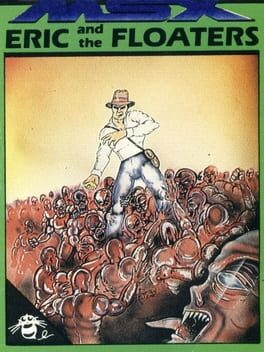
subdirectory_arrow_right Bomberman (Franchise)
▲
3
▼
The ZX Spectrum release of Bomberman was renamed Eric and the Floaters to prevent association with a series of terrorist bombings performed by Irish republican groups during The Troubles in 1984.
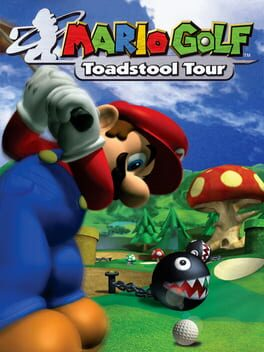
This trivia has been marked as "Not Safe for Work".
It may not be appropriate for all visitors and definitely isn't appropriate for work or school environments.
Click here to unhide it.
It may not be appropriate for all visitors and definitely isn't appropriate for work or school environments.
Click here to unhide it.
▲
3
▼

▲
3
▼
In Axie Infinity, a play-to-earn NFT game revolving around breeding, training, and selling axolotl-like creatures called Axies for real money, more experienced players will rent out their Axies to less experienced players in exchange for a portion of the less experienced player's later profits. This feature contains heavy similarities to sharecropping, a real-life practice often described by its use in the United States from the Reconstruction era into the mid-20th century as a post-abolition equivalent to slavery. Due to many of the low level players taking loans coming from low-income countries such as the Philippines and Brazil, Axie Infinity has been described by some analysts as "digital colonialism".
Articles about Axie Infinity and comparisons to sharecropping:
https://thebusinessofesports.com/2022/05/16/the-problem-with-axie-infinity
https://shows.acast.com/cyber/episodes/the-digital-sharecroppers-of-axie-infinity
https://cointelegraph.com/news/axie-infinity-is-toxic-for-crypto-gaming
Research paper about Axie Infinity which references which countries the game is most popular in. See "1. INTRODUCTION":
https://figshare.com/articles/journal_contribution/Play-to-Earn_A_Qualitative_Analysis_of_the_Experiences_and_Challenges_Faced_By_Axie_Infinity_Online_Gamers_Amidst____the_COVID-19_Pandemic/18856454/1
https://thebusinessofesports.com/2022/05/16/the-problem-with-axie-infinity
https://shows.acast.com/cyber/episodes/the-digital-sharecroppers-of-axie-infinity
https://cointelegraph.com/news/axie-infinity-is-toxic-for-crypto-gaming
Research paper about Axie Infinity which references which countries the game is most popular in. See "1. INTRODUCTION":
https://figshare.com/articles/journal_contribution/Play-to-Earn_A_Qualitative_Analysis_of_the_Experiences_and_Challenges_Faced_By_Axie_Infinity_Online_Gamers_Amidst____the_COVID-19_Pandemic/18856454/1
Franchise: Sonic The Hedgehog
▲
3
▼
According to former Sega employee Del Walker, from his experience working for the company in Japan, the Sonic the Hedgehog franchise is not particularly popular to domestic audiences there as the character was designed to appeal to Westerners. He claimed this disconnect is so strong that many Japanese gamers do not understand why Sonic is so popular abroad.
Article about Del's testimony on Sonic's popularity:
https://stealthoptional.com/news/sonic-is-kind-of-lame-in-japan/
Proof that Del is a real Sega employee:
https://www.linkedin.com/in/deldrakewalker
https://stealthoptional.com/news/sonic-is-kind-of-lame-in-japan/
Proof that Del is a real Sega employee:
https://www.linkedin.com/in/deldrakewalker
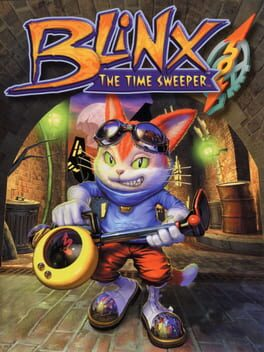
▲
3
▼
Despite being positioned as the Xbox's mascot by the gaming press, Blinx the Time Sweeper was not created to fill that role or rival the likes of Mario and Sonic. Despite an internal push from the Blinx team for the character to become the platform's mascot in Japan (of which executive producer Ed Fries claims to be "not sure how seriously [the Blinx team] took it"), as well as the desire of Bill Gates for Microsoft's gaming department to have a mascot, the character was not officially used as an Xbox mascot, though the game did get a major marketing push in Japan thanks to convenient timing during a Christmas dry spell of game releases and being a Japanese game.

▲
3
▼
Even though Super Mario Run didn't officially release in China and had no Chinese language support, there is still an official FAQ page for the game in Simplified Chinese along with the other officially available languages.
Super Mario Run Simplified Chinese Support page:
https://support.supermariorun.com/zh-CN/faq
Information about there being no Chinese release for the game: https://nintendoeverything.com/nintendo-has-no-plans-at-this-point-to-release-super-mario-run-in-china/
https://support.supermariorun.com/zh-CN/faq
Information about there being no Chinese release for the game: https://nintendoeverything.com/nintendo-has-no-plans-at-this-point-to-release-super-mario-run-in-china/

▲
3
▼
 In the Japanese and European versions of the game, a DLC quest was released called, "The Phantom Remedy" which had Luffy visit a nearby island with a hot spring. The quest would task Luffy with collecting bottles to gather water from the hot spring, as it's rumored to grant eternal youth. Each time Luffy would visit the hot spring, he would come across Nami, Nico Robin, and Tashigi bathing in the springs.
In the Japanese and European versions of the game, a DLC quest was released called, "The Phantom Remedy" which had Luffy visit a nearby island with a hot spring. The quest would task Luffy with collecting bottles to gather water from the hot spring, as it's rumored to grant eternal youth. Each time Luffy would visit the hot spring, he would come across Nami, Nico Robin, and Tashigi bathing in the springs.This DLC was not made available in the North American release, though the island would later be patched in without the quest.




